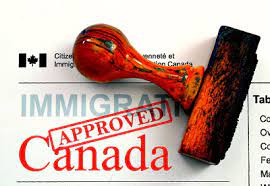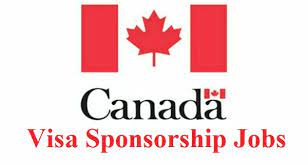Immigrating to Canada; The Benefits of Moving to Canada
Canada recently announced that it will resume Express Entry draws for all candidates in early July. This will allow more immigrants abroad to pursue their goal of moving to Canada. This is major news because Express Entry is the main way the federal government welcomes skilled immigrants.
Canada has been ranked as the number one immigration country in the world, according to the 2021 Anholt-Ipsos Nation Brands Index. People from all over the world come to Canada in search of a better life. Whether it’s for political stability, career prospects, or for the future of their children, Canada is a land of possibilities.
Here are some of the reasons why people uproot their lives to live in the North.
Jobs
Canada has long suffered from a labor shortage, which has been exacerbated by the pandemic. Unemployment rates are at record lows. Meanwhile, job vacancy rates are at record levels, with Canada recently reporting more than 900,000 job vacancies.
Despite the tight labor market, the Canadian economy had not only rebounded by the end of 2021 but had also grown from its pre-pandemic state. Canadian gross domestic product grew 6.7% in the fourth quarter year on year, topping analysts expectations of 6.5%, according to CBC.
Stable political system
Canada is a very stable democracy. In 2020, it ranked fifth on the Economist Intelligence Unit’s Global Democracy Index, ahead of all North American countries.
Last year, US News ranked Canada number one in its Best Countries Report. Canada scored the highest on the Life Qualification and Social Purpose measures of the report.
Safety
Canada is one of the safest destinations in the world. According to the insurance company Berkshire Hathaway Travel Protection Report 2022, Canada is the third safest country in the world, and the Canadian city of Montreal is the safest city in the world. These findings were determined using the pooling of survey results, along with data on risk, crime, and climate resilience among others.
Free health care
Canada offers free health care to citizens and permanent residents. Each county and territory has its own health plan that covers different products and services. Newcomers can sign up for their county health insurance system and get a health card. Through the public health care system, Canadians do not have to pay for most medical and emergency services.
Good education
According to the OECD report on literacy rates, immigrant students in Canada report higher reading levels than non-immigrant students. Also, Canadian students were the best performers in reading compared to other OECD countries.
There is a large selection of universities and colleges in Canada. The University of Toronto, University of British Columbia, McGill University, and McMaster University are among the top 100 universities in the world, according to Times Higher Education.
Multicultural
In 1988, Canada passed the Canadian Multiculturalism Act into law. The first of its kind in the world, it enshrined in law the federal government’s commitment to promoting a diverse society.
Today, Canada is home to people from more than 200 countries, and a wide variety of ethnicities, religions, and cultures.
More than 100 immigration programs
Canada has over 100 immigration programs for economy-class immigrants alone.
This coming July, Canada will once again accept applications from major immigration programs. These programs are administered through the so-called Express Entry system. Persons eligible for Express Entry are placed in a pool of candidates and awarded a score based on the Comprehensive Ranking System (CRS). Candidates with the highest scores are invited to apply for permanent residence in Canada.
Entry to the Express Entry pool is free, and doing so not only provides an opportunity to apply for Canadian immigration but also opens eligible candidates to receive a provincial nomination from the Enhanced Provincial Nominee Program (PNP). Those who receive the nomination are effectively guaranteed to receive an Invitation to Apply (ITA) for permanent residence, as it comes with 600 CRS points.
Stability support for immigrants
Canada offers settlement support for immigrants, starting before they arrive in the country. The state spends about 1.7 billion Canadian dollars on settlement services each year to support new arrivals, more than anywhere else in the world.
Immigrants can access settlement services by both Immigration, Refugees, and Citizenship Canada (IRCC) and the Ministry of Immigration, French and Integration (MIFI) for new arrivals to Quebec.
There are settlement services funded by multiple levels of government. At the federal level, IRCC has about 1,200 providers across Canada listed on its website.






